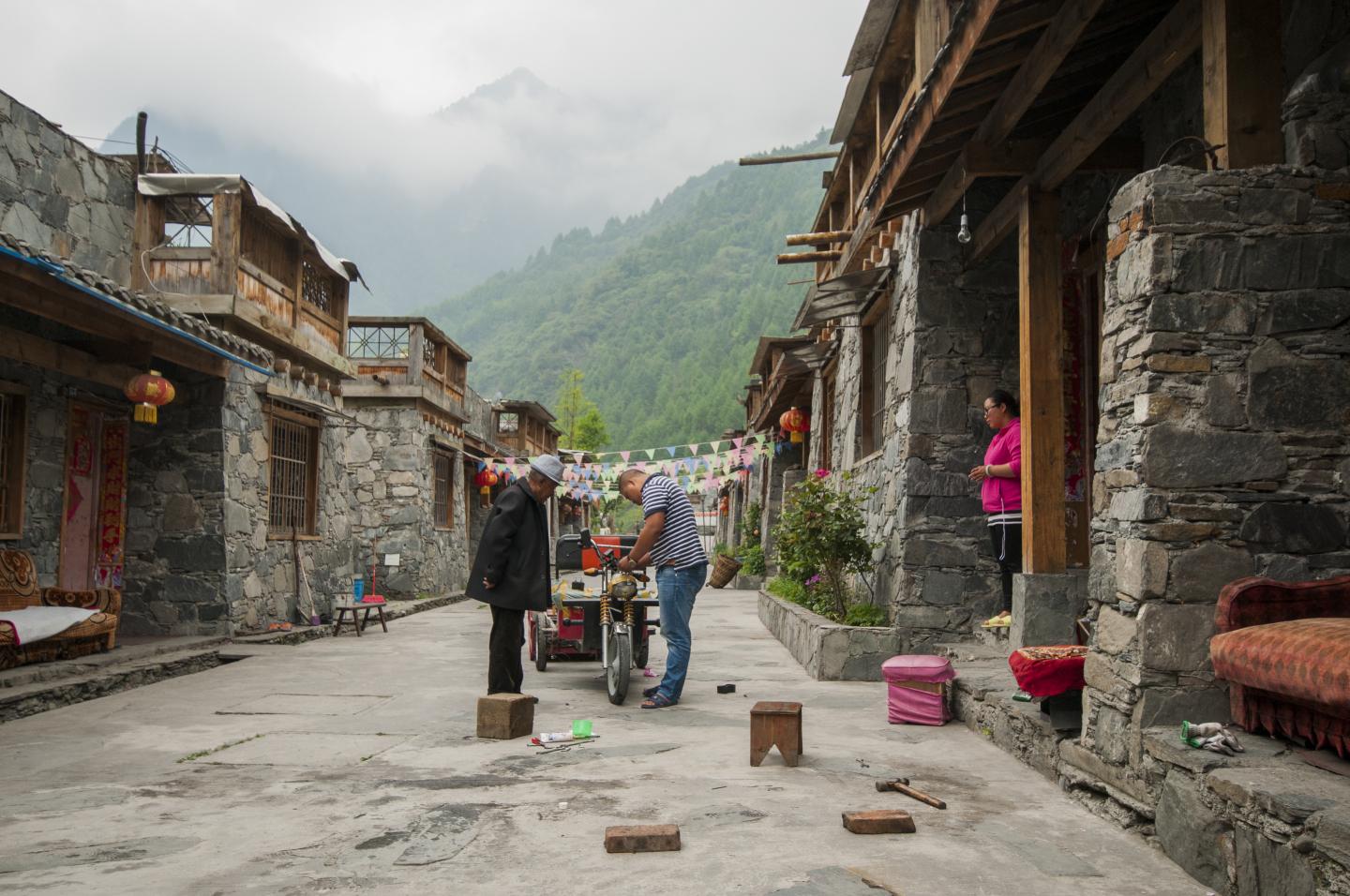
Credit: Jordan Noble, Michigan State University Center for System Integration and Sustainability
Even as the world gets on the same sustainability page courtesy of the United Nation Sustainable Development Goals (SDGs), those very goals can result in significant tradeoffs. Scientists suggest new ways to tackle unexpected or unintended consequences cropping up on the way to a better world at the American Association for the Advancement of Science (AAAS) Annual Meeting.
Sustainable Development Goals: New Science Balancing a Hyperconnected World brings together a senior economist, an early career conservation biologist and a PhD candidate who also is a fourth-generation farmer to talk about integrating approaches to understanding how both people and nature can succeed.
The symposium will be 8 – 9:30 a.m. Sunday, Feb. 17, in Washington, DC.
What brings them together is work within the framework of telecoupling (socioeconomic-environmental interactions over distances)– a way to blend systems and disciplines to holistically examine events across the globe. Telecoupling is a testament to the understanding that decisions made one place – to end hunger, to provide clean water, to preserve energy — have consequences across the globe, and along the path between.
“Today’s sustainability challenges are making unprecedented demands on science,” said Jianguo “Jack” Liu, director of Michigan State University’s Center for Systems Integration and Sustainability (MSU-CSIS). Liu introduced the concept of telecoupling in 2008 and organized the first symposium on telecoupling at AAAS in 2011. “This means science itself must change to embrace many disciplines and points of view together to be sure we aren’t achieving SDGs in one place while losing ground on another. We can’t afford to make these kinds of errors.”
Anna Herzberger, a PhD candidate in MSU-CSIS, will talk about the hidden costs China is facing by importing soybeans. Traditionally, importing crops is seen as a way to push environmental damage to another country, letting the exporters bear the burdens of water use, fertilizer and pesticide pollution and other agricultural costs. Yet in Shifting Burdens: The Hidden Costs of Food Importation, Herzberger will explore less intuitive costs placed on China farmers who once grew soybeans and now, unable to compete with Brazilian and American farmers, grow more corn and rice.
“I’m finding that Chinese farmers have to change the way they dispose of more biomass left after harvest of these crops,” said Herzberger, who is the fourth generation of family farmers in southern Illinois. “Sometimes it means burning what’s left from rice and corn, and the fallout of that is that the farmers and getting burned, too.”
Hongbo Yang, a research fellow at the Smithsonian Conservation Biology Institute, is addressing how people’s livelihoods can be a bellwether of achieving sustainability and understanding how people who live in and around sensitive ecological areas are faring can help reduce tradeoffs in SDGs.
In Reaching Sustainable Development, Yang will discuss his findings in China’s Wolong Nature Reserve, which is dedicated to protecting the habitat of the beloved giant pandas while at the same time home to some 4,900 people. Understanding which types of work can both improve the lives of the people living there while also protecting the fragile panda habitat is important to create effective policy.
“We have been able to focus on the tradeoffs made when people pick different ways to make a living – careful to consider both the effect on the environment and human well-being – since true sustainability can’t be achieved without considering both humans and nature,” Yang said.
Thomas Hertel, Distinguished Professor of Agricultural Economics at Purdue University, notes that half of the SDGs relate either directly or indirectly to the use of land and water resources, the governance and physical characteristics of which vary greatly across the globe. Coupling that knowledge with the realization that population and income overseas will put new and varied stresses on U.S. croplands and groundwater supplies, Hertel points out that it will take scrutiny by multiple disciplines to understand how to best meet SDGs. Otherwise we run the risk of simply trading one gain for another loss.
In Amplifying the Power of Economic Research: Integrating Disciplines, he’ll share research into the impact of macro-economic growth in China on cropland expansion in Brazil, and how the interplay with Brazilian soybean productivity growth resulted in Brazil eclipsing the US as the world’s largest soybean exporter, as well as sustainability stresses in the United States — specifically the role of global economic growth in driving local cropland conversion and groundwater stress.
“I’ll also explore the impact of prospective groundwater withdrawal limitations in the Southwestern United States and how they might contribute to a reconfiguration of global cropland use,” Hertel said. “Finally, I will discuss the local, regional and global impacts of different policies aimed at reducing water pollution from excess nutrients used in agriculture across the U.S. Corn Belt. Each of these case studies has required far-reaching collaboration across disciplines.”
###
Portions of the research was funded by the National Science Foundation. The session is co-organized by Liu and Sue Nichols, assistant director of CSIS-MSU.
Media Contact
Sue Nichols
[email protected]
517-282-1093
Original Source
http://csis.




